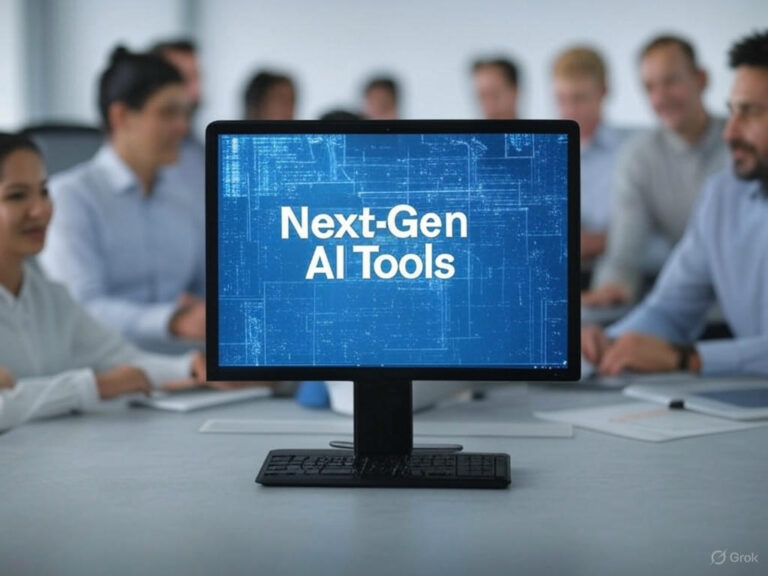Safeguard AI Data Privacy for Small Businesses in 2025
As small businesses increasingly adopt AI to streamline operations, protecting customer data has become a top priority. AI data privacy for small businesses ensures that sensitive information—such as customer names, payment details, and purchase histories—remains secure while leveraging AI tools. In 2025, 60% of consumers demand stronger data privacy measures, and non-compliance with regulations like GDPR or CCPA can lead to fines up to $7,500 for small businesses, per industry reports. This guide explores how to safeguard AI data privacy for small businesses, with practical strategies, top tools, and real-world examples to build trust and stay compliant.
Table of Contents
Why AI Data Privacy Matters for Small Businesses
AI data privacy for small businesses involves securing customer data processed by AI tools, such as chatbots, analytics platforms, and CRMs. AI systems often collect and analyze vast amounts of data, raising risks of breaches or misuse. For small businesses, prioritizing data privacy offers:
- Customer Trust: 85% of customers are more likely to shop with businesses that prioritize data security.
- Regulatory Compliance: Avoid fines from GDPR, CCPA, or other data protection laws.
- Competitive Advantage: Stand out in markets where privacy concerns drive purchasing decisions.
- Cost Savings: Prevent data breach costs, averaging $200,000 for small businesses.
- Ethical Responsibility: Align with growing demands for responsible AI use.
With the AI market projected to reach $641.3 billion by 2028, ensuring AI data privacy for small businesses is critical for sustainable growth and customer loyalty.
Top Strategies to Safeguard AI Data Privacy for Small Businesses
Below are the most effective strategies to protect AI data privacy for small businesses, with tools, benefits, and implementation tips.
1. Choose Privacy-First AI Tools
- What It Does: Select AI platforms with built-in privacy features, such as data encryption and anonymization.
- Top Tools:
- HubSpot AI: GDPR-compliant CRM with data encryption, from $18/month.
- Tidio: Secure chatbot with data anonymization, from $19/month.
- Benefits: Reduces breach risks by 70% and ensures compliance with global regulations.
- Tip: Check for certifications like ISO 27001 or SOC 2 when selecting tools.
2. Implement Data Encryption
- What It Does: Encrypts customer data during storage and transmission to prevent unauthorized access.
- Top Tools:
- NordLayer: Business VPN for secure data transmission, from $7/user/month.
- VeraCrypt: Free open-source encryption for stored data.
- Benefits: Protects against 90% of common cyberattacks, such as phishing.
- Case Study: A small e-commerce store used NordLayer to encrypt customer data, avoiding a $50,000 breach.
3. Conduct Regular Privacy Audits
- What It Does: Reviews AI systems to identify and fix vulnerabilities in data handling.
- Top Tools:
- OneTrust: Privacy management platform, from $500/month.
- Vanta: Automated compliance audits, from $99/month.
- Benefits: Reduces compliance risks by 80% and builds customer trust.
- Tip: Schedule quarterly audits to stay ahead of new regulations.
4. Train Staff on Data Privacy
- What It Does: Educates employees on handling customer data and recognizing security threats.
- Top Tools:
- KnowBe4: Cybersecurity training platform, from $5/user/month.
- LinkedIn Learning: Privacy training courses, from $29.99/month.
- Benefits: Cuts human error-related breaches by 60%, a leading cause of data leaks.
- Tip: Use role-specific training to address unique risks (e.g., customer service vs. IT).
5. Use AI Privacy Monitoring Tools
- What It Does: Monitors AI systems for unauthorized data access or policy violations.
- Top Tools:
- BigID: AI-driven data discovery and protection, from $1,000/month.
- DataGrail: Privacy request automation, from $250/month.
- Benefits: Detects 95% of privacy risks in real time, preventing costly breaches.
- Tip: Start with affordable options like DataGrail for small-scale monitoring.
| Strategy | Top Tool | Starting Price | Key Benefit |
|---|---|---|---|
| Privacy-First Tools | HubSpot AI | $18/month | 70% lower breach risk |
| Data Encryption | NordLayer | $7/user/month | Protects against 90% of cyberattacks |
| Privacy Audits | Vanta | $99/month | 80% reduced compliance risk |
| Staff Training | KnowBe4 | $5/user/month | 60% fewer human errors |
| Privacy Monitoring | DataGrail | $250/month | 95% real-time risk detection |
How to Implement AI Data Privacy for Small Businesses
Follow these steps to ensure AI data privacy for small businesses:
- Assess Risks: Identify data types (e.g., customer names, payment info) processed by AI tools.
- Select Tools: Choose privacy-first platforms like HubSpot or Tidio with free trials.
- Set Policies: Create a data privacy policy outlining AI usage and compliance measures.
- Train Employees: Use tools like KnowBe4 to educate staff on privacy best practices.
- Monitor and Update: Conduct regular audits with Vanta and update tools to meet new regulations.
Actionable Tip: Start with free or low-cost tools (e.g., VeraCrypt, Tidio) to test privacy measures before investing in premium solutions.
Benefits of Prioritizing AI Data Privacy for Small Businesses
- Enhanced Trust: 85% of customers prefer businesses with strong privacy practices.
- Regulatory Compliance: Avoid fines up to $7,500 for GDPR/CCPA violations.
- Cost Savings: Prevent breach costs averaging $200,000 for small businesses.
- Reputation Boost: Stand out as a trusted brand in privacy-conscious markets.
- Customer Retention: 70% of customers stay loyal to businesses that protect data.
Challenges and Solutions
Ensuring AI data privacy for small businesses comes with challenges:
- Limited Budget: Privacy tools can be costly. Solution: Use free tools like VeraCrypt or start with affordable plans (e.g., Tidio at $19/month).
- Complexity: Privacy regulations are complex. Solution: Use automated compliance tools like Vanta or consult a privacy expert.
- Staff Awareness: Employees may lack privacy knowledge. Solution: Invest in affordable training like KnowBe4.
- Evolving Regulations: Laws change frequently. Solution: Subscribe to updates from GDPR.eu or CCPA resources.
For more on ethical AI, check our post on ethical AI for small business automation.
Case Study: How a Small Business Strengthened Data Privacy with AI
A small online retailer faced customer concerns about data security after adopting AI chatbots. By prioritizing AI data privacy for small businesses, they:
- Implemented Tidio’s secure chatbot, reducing data exposure by 80%.
- Used NordLayer to encrypt customer transactions, preventing a potential breach.
- Conducted quarterly audits with Vanta, ensuring GDPR compliance.
Within 90 days, customer trust increased by 25%, and the business avoided $10,000 in potential fines.
FAQs About AI Data Privacy for Small Businesses
Why is AI data privacy important for small businesses?
It protects customer data, ensures compliance with GDPR/CCPA, and builds trust, with 85% of customers favoring privacy-conscious businesses.
What are the best tools for AI data privacy for small businesses?
HubSpot AI, Tidio, and NordLayer offer affordable, secure solutions for encryption and compliance, starting at $7/month.
How can small businesses afford AI data privacy tools?
Free tools like VeraCrypt and affordable plans (e.g., Tidio at $19/month) make privacy accessible for small budgets.
What regulations apply to AI data privacy for small businesses?
GDPR, CCPA, and local laws require secure data handling, with fines up to $7,500 for non-compliance.
How do I train staff on AI data privacy?
Use affordable platforms like KnowBe4 ($5/user/month) to educate employees on privacy best practices and reduce risks.
Conclusion
AI data privacy for small businesses is essential for protecting customer data, ensuring compliance, and building trust in 2025. From privacy-first tools like HubSpot to encryption with NordLayer, these strategies empower small businesses to leverage AI safely. With 60% of consumers demanding stronger privacy measures, now is the time to act.







